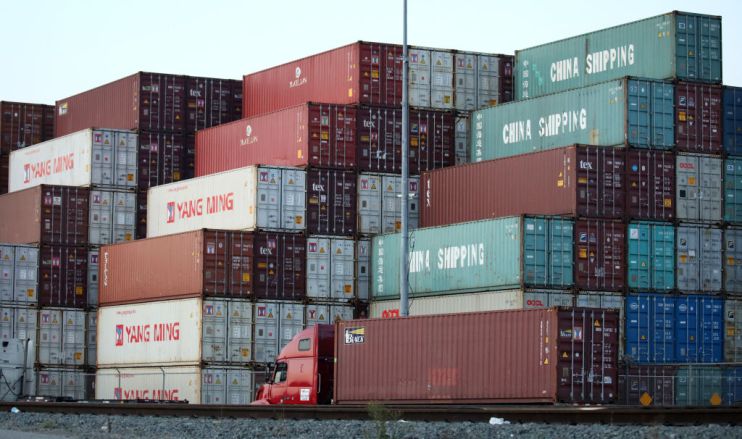Asian stocks soar after China halves US tariffs

Asian stocks surged overnight after China announced it would halve tariffs on about 1,700 US goods in a bid to boost market sentiment amid the coronavirus outbreak.
China’s Shanghai composite index finished 1.7 per cent higher, Japan’s Nikkei jumped 2.4 per cent, and Hong Kong’s Hang Seng rose 2.5 per cent.
Beijing’s finance ministry said that from 14 February it would lower tariffs on some US goods from 10 per cent to five per cent and on others from five per cent to 2.5 per cent.
The products are part of the $75bn (£58bn) of goods on which China last year ramped up tariffs amid the trade war with the US.
“It shouldn’t be surprising news as this comes after both nations had agreed in phase one negotiations that they would reduce tariffs on each other’s goods as part of the deal,” said Jim Reid of Deutsche Bank.
Jasper Lawler of London Capital Markets said it was particularly good news for Hong Kong, which has been propelled higher.
“Hong Kong’s whole raison d’etre is as a gateway between China and the rest of the world. Lowered tariffs do Hong Kong the power of good,” he said.
The boost to markets came even as the death toll from coronavirus rose once again. It has now claimed 563 lives, while the number of infections in China has risen to 28,000.
Markets rose yesterday, however, after reports that there had been good progress on developing a treatment to the virus at both a UK and Chinese university.
That said, the World Health Organization played down hopes of progress, saying there are “no proven, effective therapeutics” for the virus.
The Brent crude oil price was 1.4 per cent higher this morning at $56.1 a barrel after climbing yesterday.
Reid said US data has also played a role in markets’ shift higher. The US ISM non-manufacturing index rose to 55.5 in January against an expected 55.1, hitting its highest level since August and showing a strong services sector.
In Washington yesterday, President Donald Trump was – as expected – cleared in his impeachment trial.
“Whether it’s the worst of the coronavirus fears being behind us, US politics or solid economic data, the risk-on mood in markets appears to be showing little sign of running out of steam yet,” Reid said.